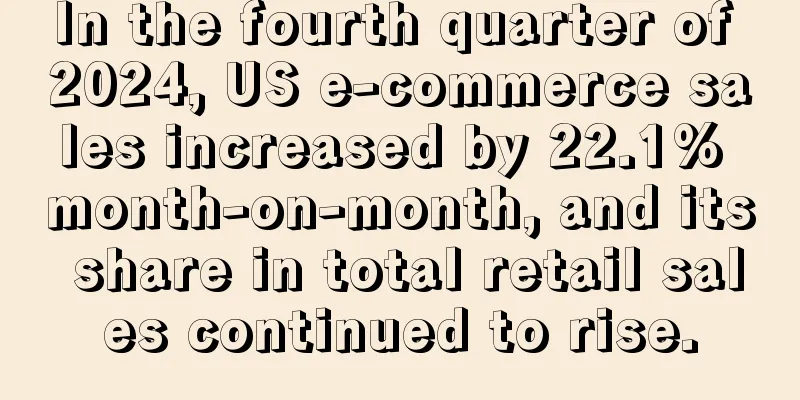Sellers face $12.8 million in fines for fake reviews? You can’t miss these Amazon melons!

|
Recently, British brand evaluation agency Brand Finance released the list of "The World's 100 Most Valuable Technology Brands in 2020". Among them, Amazon ranked first with a brand value of US$220.8 billion. Now, sellers can also say that they participated in a project worth more than 200 billion US dollars. Let’s get back to the point. In the cross-border circle, both Amazon’s platform announcements and news have attracted much attention, and the big and small events always trigger heated discussions among sellers. Recently, Amazon’s platform has been full of gossips one after another. As a “senior” gossip-eating crowd, let me take you to understand the recent Amazon “gossips”.
Third-party sellers and Amazon's own stores seem to have always been at odds with each other. Not long ago, Amazon officially announced that third-party sellers’ sales during this year’s Prime Day exceeded US$3.5 billion, setting a record high. Can this be seen as a certificate of honor given by Amazon to third-party sellers? If you think so, you are narrow-minded! What is the truth? Amazon announced the sales of third-party sellers, but did not announce the sales of its own brands during Prime Day. According to foreign media reports, Amazon's total sales during Prime Day were about $10 billion, and Amazon's own brands had retail sales of about $6.5 billion during Prime Day, accounting for two-thirds. During Prime Day, Amazon offered deep discounts on its own products, while third-party sellers, whose inventory and delivery were restricted, offered only 10-25% discounts on 48% of transactions, and 55% of transactions were for products priced below $25. In contrast, Amazon's own brands have higher prices, deeper discounts, and most importantly, their sellers have more inventory. So whether it’s price, inventory or sales, third-party sellers lose completely. But a recent piece of news has suddenly perked up third-party sellers. Many third-party sellers believe that the monopoly operation of self-operated brands is serious, and if they are really facing a split, it will be beneficial to the sellers. Of course, if Amazon's own operations are really split up, it remains to be seen what the future situation of third-party sellers will be. Although Amazon is facing a breakup, it is certain that it will be investigated by the antitrust department. In recent times, the antitrust investigation has been a nightmare for Amazon.
Amazon naturally protested its injustice and responded by saying that the global retail market in which Amazon competes is of staggering scale and extremely competitive. Amazon accounts for less than 1% of the $25 trillion global retail market and less than 4% of the U.S. retail industry. It is not yet known what will happen next, but Amazon has just accepted severe antitrust questioning from the US Congress, and Germany's antitrust agency, the German Federal Cartel Office, has also stated that it is investigating allegations that Amazon abused its market dominance during the COVID-19 pandemic. In addition, the EU is very likely to put Amazon on the "blacklist" in the name of monopoly. The European Data Strategy recently released by the European Commission shows that EU regulators are drafting a "blacklist" of up to 20 technology giants, and it is very likely that the large Silicon Valley technology Internet companies represented by Amazon will lead this "blacklist". After Amazon was investigated by the United States, Germany, the European Union and other countries and regions in the name of antitrust, Japan also quickly followed suit. On October 19, Japan's antitrust regulator, the Fair Trade Commission, is scheduled to investigate Amazon Japan on October 27 to confirm whether a new service on the Amazon platform violates the antitrust law. If the company does not cooperate, the regulator will launch a "mandatory investigation." So what about the new service that Japan mentioned that is suspected of monopoly? Amazon Japan recently launched a consumer points refund service, where buyers can earn points as long as they spend, and the points can be used for consumption. But before, points were only returned when buying Amazon's own products. Now Amazon Japan requires all suppliers to return points to consumers, and the points fee is borne by the suppliers themselves. Amazon Japan directly notified suppliers of this new service unilaterally, and small and medium-sized enterprises and individual suppliers had no chance to negotiate with Amazon. If you stand in Amazon's position, it can be summed up in one sentence: I will organize the event, you will pay for it, and you want to communicate? No, you have to listen to me! At first glance, this sounds a bit like a domineering CEO. However, this "CEO" still has a long way to go in the antitrust investigation... In addition to the Amazon platform itself, sellers have also come out to cause trouble! I believe that everyone is accustomed to fake reviews, but it is the first time to be fined for fake reviews.
The latest data from monitoring service company Fakespot shows that during the COVID-19 epidemic, about 42% of product reviews on Amazon’s website were fake reviews. Speaking of fake reviews, an Amazon seller recently faced a fine of up to $12.8 million for allegedly creating fake reviews for diet pills. The seller paid third-party websites to write and post fake reviews on Amazon.com, raising product ratings to 4.3 or 5 stars, and requiring that his products maintain an average of 5 stars. The FTC has decided to impose a $12.8 million fine on the Amazon seller, but the fine will be suspended if the seller is willing to pay a $50,000 fine and fulfill other tax obligations. Regarding the problem of rampant fake reviews, Amazon also pointed out that the platform is aware of "bad actors" trying to abuse the system and is investing significant resources to protect the integrity of reviews. Therefore, we would like to remind sellers: operate accounts carefully, especially when the peak season comes and Amazon platform is strictly supervising accounts. Sellers must abide by the platform rules, otherwise the gains will outweigh the losses. |
>>: Opening a store on Amazon in 2021, as a seller you may have these troubles~
Recommend
Design patents are hard to guard against, practical tutorial on the steps of searching for design patents in the United States and the European Union (verified)
Europe https://www.tmdn.org/tmdsview-web/dsview-l...
Amazon advertising bidding is unattainable. How can novice sellers play advertising?
As the internal competition among Amazon sellers ...
This time, the United States is really anxious! China's mask exports are once again favorable
As of the 26th, the United States had 12,017 new c...
The top seller was spoofed! Amazon relaxed the replenishment restrictions and lowered the IPI threshold to 400!
As Christmas approaches, 2021 is coming to an end....
What is BingaBinga? BingaBinga Review
BingaBinga is a shopping platform for middle and h...
What is Bigbasket? Bigbasket Review
Bigbasket is India's largest online food and g...
FAQs about Amazon FBA (Part 3)
Image source: Tuchong Creative Quickly promote the...
What is MOLPay? MOLPay Review
MOLPay was established in Malaysia at the end of 2...
What is Anfu Business Consulting (Shanghai) Co., Ltd.? Anfu Business Consulting (Shanghai) Co., Ltd. Review
Anfu Business Consulting (Shanghai) Co., Ltd. is a...
What is Namshi? Namshi Review
Namshi is a fashion shopping website in Arab count...
Amazon TM label chasing and selling
First of all, sellers should improve their awaren...
What is EORI? EORI Assessment
The EORI number is a registration number required ...
What is THE NOCO COMPANY? THE NOCO COMPANY Review
The Noco Company is an American private multinatio...
As a developer, what are the characteristics of the products you have selected in the past seven years? Why do products developed for high profits often fail?
Let me talk to you about what products I have chos...
What is the Purple Bird Data Cube? Purple Bird Data Cube Review
Ziniao Data Cube is a multifunctional Amazon selle...









